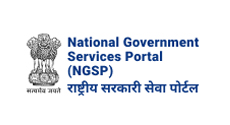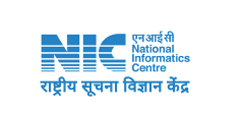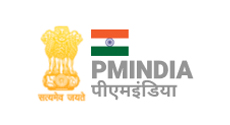- Skip to main content
- Screen Reader
- Hindi
- A A A
- Color
Dr. Pradeep Kumar Jain

Dr. Pradeep Kumar Jain
Principal Scientist
Email Id :
Pradeep[dot]Jain[at]icar[dot]gov[dot]in
Phone :
7840051015 Discipline: Molecular Biology and Biotechnology
Education:
Ph.D.- Plant Molecular Biology
(Delhi Univ. South Campus)
Post Doc- Univ. of California, Riverside, USA
Research Interest
- I work on two plant systems, chickpea, a legume, and Arabidopsis, a model plant. Chickpea is an integral part of the daily diet of the majority of the population. The yield of chickpea has not improved with time because of a number of stresses (both biotic and abiotic) severely affecting productivity. Our group is trying to understand drought tolerance and wilt resistance in chickpeas using the tools of functional genomics. We have generated thousands of expressed sequence tags (ESTs) by suppression subtraction hybridization (SSH) to identify differentially expressed genes in drought-tolerant/wilt resistant and drought susceptible/wilt susceptible genotypes in chickpea. Several genes like ERF, NAC, DREB, etc. have been characterized in detail. Of late, microRNAs have emerged as major players in gene regulation. We have identified and characterized salt- and wilt-stress responsive microRNAs for the first time. We are also using mapping population(s) for identifying genes/QTL involved in drought tolerance and wilt resistance.
- I also work in the area of Host delivered RNAi for nematode resistance. We have identified and cloned nematode-responsive root-specific promoters, in Arabidopsis, as an alternative to constitutive promoters for expressing dsRNA to induce RNAi. We have observed a 40-60 % reduction in nematode infection in transgenic plants expressing dsRNA for nematode genes. Our group has a longstanding interest in isolating promoters with specific spatial and temporal expression patterns. Such promoters can be ultimately used for manipulating responses to biotic and abiotic stresses. Several tissue-specific promoters like root-, anther- and trichome-specific promoters have been isolated and characterized.
Awards & Honors
- BOYSCAST Fellowship by DST for the year 2003-04
- Yashwant K. Yadava YK, Chaudhary P, Yadav S, Rizvi AH, Kumar T, Srivastava R, Soren KR, Bharadwaj C, Srinivasan R, Singh NK and Jain PK (2023) Genetic mapping of quantitative trait loci associated with drought tolerance in chickpea (Cicer arietinum L.) Scientific Reports. (2023) 13:17623 | https://doi.org/10.1038/s41598-023-44990-y).
- Kalwan G, Priyadarshini P, Kumar K, Yadava YK, Yadav S, Kohli D, Gill SS, Gaikwad K, Hegde V, Jain PK (2023). Genome wide identification and characterization of the amino acid transporter (AAT) genes regulating seed protein content in chickpea (Cicer arietinum L.). Int. J Biol. Macromol. Aug 15:252:126324. doi: 10.1016/j.ijbiomac.2023.126324.
- Yadava S, Kalwan G, Meena S, Gill SS, Yadava YK, Gaikwad K and Jain PK (2023) Unravelling the due importance of pseudogenes and their resurrection in plants. Plant Physiology and Biochemistry 203(2023)108062.https://doi.org/10.1016/j.plaphy.2023.108062.
- Kumar, D., Ramkumar, M.K., Dutta, B. Kumar A, Pandey R, Jain PK, Gaikwad K, Mishra DC, Chaturvedi KK, Rai A, Solanke A and Sevanthi AM (2023) Integration of miRNA dynamics and drought tolerant QTLs in rice reveals the role of miR2919 in drought stress response. BMC Genomics 24, 526 (2023). https://doi.org/10.1186/s12864-023-09609-6
- TS A, Srivastava A, Tomar BS, Behera TK, Krishna H, Jain PK, Pandey R, Singh B, Gupta R and Mangal M (2023) Genetic analysis of heat tolerance in hot pepper: insights from comprehensive phenotyping and QTL mapping. Front. Plant Sci. 14:1232800. doi: 10.3389/fpls.2023.1232800.
- Grewal SK et al. (2023). Characterization of chickpea cultivars and trait specific germplasm for grain protein content and amino acids composition and identification of potential donors for genetic improvement of its nutritional quality. Plant Genetic Resources: Characterization and Utilization 1–11. https://doi.org/10.1017/S147926212300028X.
- Hiremath V, Singh KP, Jain N, Swaroop K, Jain PK, Panwar S, Sinha N. 2023. Cross species/genera transferability of simple sequence repeat markers, genetic diversity and population structure analysis in gladiolus (Gladiolus × grandiflorus L.) genotypes. Peer J. 11:e15820 https://doi.org/10.7717/peerj.15820.
- Yadav, S., Yadava, Y.K., Meena, S., Singh, L.B., Kansal, R., Grover, M., Nimmy, M.S., Bharadwaj, C., Paul, V., Gaikwad, K., & Jain, P.K. The SPL transcription factor genes are potential targets for epigenetic regulation in response to drought stress in chickpea (C. arietinum L.). Molecular Biology Reports. (2023). doi.org/10.1007/s11033-023-08347-y.
- Priyadarshini P, Sahu S, Kalwan G, Yadava Y, Nagar R, Rai V, Bharadwaj C, Gaikwad K and Jain PK (2023) Unravelling the mechanism of Fusarium wilt resistance in chickpea seedlings using biochemical studies and expression analysis of NBS-LRR and WRKY genes. Physiological and Molecular Plant Pathology 124:101958.
- Joshi N, Reddy S, Kumar N, Bharadwaj C, Tapan K, Patil BS, Jain PK, Nimmy M. S., Roorkiwal M, Verma P, Varshney RK, Siddique KHM and Sudhir K. (2023) Siphoning novel sources of seedling salinity tolerance from the diverse chickpea landraces. Crop and Pasture Science. Volume 74 Number 11. pp. 1080-1093. https://doi.org/10.1071/CP22319.
- Balakumaran M, Chidambaranathan P, Tej Kumar J. P., Sirohi A, Jain PK, Gaikwad K, Iyyappan Y, Rao AR, Sahu S, Dahuja A and Mohan S (2022) Deciphering the mechanism of anhydrobiosis in the entomopathogenic nematode Heterorhabditis indica through comparative transcriptomics. PLoS ONE 17(10): e0275342. https://doi.org/10.1371/journal.pone.0275342
- Kalwan G, Gill SS, Priyadarshini P, Gill R, Yadava Y, Yadav S MoniBaruah P, Gaikwad K and Jain PK (2022) Approaches for identification and analysis of plant Circular RNAs and their role in stress responses. Environmental and Experimental Botany. https://doi.org/10.1016/j.envexpbot.2022.105099.
- Joshi I, Kumar A, Kohli D, Bhattacharya R, Sirohi A, Chaudhury A and Jain PK (2022) Gall-specific promoter, an alternative to the constitutive CaMV35S promoter, drives host-derived RNA interference targeting Mi-msp2 gene to confer effective nematode resistance. Front. Plant Sci. 13:1007322. doi: 10.3389/fpls.2022.1007322.
- Kumar A, Joshi I, Changwal C, Sirohi A and Jain PK (2022) Host‑delivered RNAi‑mediated silencing of the root‑knot nematode (Meloidogyne incognita) effector genes, Mi‑msp10 and Mi‑msp23, confers resistance in Arabidopsis and impairs reproductive ability of the root‑knot nematode. Planta 256:74. https://doi.org/10.1007/s00425-022-03977-1.
- Yadav, S., Yadava, Y.K., Kohli, D. et al. Genome-wide identification, in silico characterization and expression analysis of the RNA helicase gene family in chickpea (C. arietinum L.). Sci Rep 12, 9778 (2022). https://doi.org/10.1038/s41598-022-13823-9
- Nimmy MS, Kumar V, Suthanthiram B, Subbaraya U, Nagar R, Bharadwaj C, Jain PK and Krishnamurthy P (2022) A Systematic Phylogenomic Classification of the Multidrug and Toxic Compound Extrusion Transporter Gene Family in Plants. Front. Plant Sci. 13:774885.doi: 10.3389/fpls.2022.774885.
- Yadav S, Yadava YK, Kohli D, Meena S, Paul Vijay, Jain PK (2022) Genome‑wide identification and expression analysis of the GRAS gene family in response to drought stress in chickpea (Cicer arietinum L.). 3Biotech 12:64. https://doi.org/10.1007/s13205-021-03104-z.
- Joshi I, Kohli D, Pal A, Chaudhury A, Sirohi A and Jain PK (2022) Host delivered-RNAi of effector genes for imparting resistance against root-knot and cyst nematodes in plants. Physiological and Molecular Plant Pathology 118 :101802. https://doi.org/10.1016/j.pmpp.2022.101802.
- Singh L, Kohli D, Gaikwad K, Kansal R, Dahuja A, Paul V, Bharadwaj C and Jain PK (2021) Effect of drought stress on morphological, biochemical, physiological traits and expression analysis of microRNAs in drought-tolerant and sensitive genotypes of chickpea. Indian J. of Genetics and Plant Breeding. 81(2):266-276.
- Priyadarshini, P, Kohli D, Yadav S, Srinivasa N, Bharadwaj C, Anjoy P, Gaikwad K and Jain PK (2021) Quantitative detection of pathogen load of Fusarium oxysporum f.sp. ciceris infected wilt resistant and susceptible genotypes of chickpea using intergenic spacer region-based marker. Physiological and Molecular Plant Pathology 114 (2021) 101622.
- Raiya R, Hegde V, Krishnan V, Bharadwaj C, Tripathi S and Jain PK (2021) Genetics of lodging resistance in chickpea (Cicer arietinum L). Euphytica (2021) 217:83. https://doi.org/10.1007/s10681-021-02817-9.
- Kumar K, Srivastava H, Das A, Tribhuvan KU, Durgesh K, Joshi R, Sevanthi AM, Jain PK, Singh NK and Gaikwad K. (2021) Identification and characterization of MADS box gene family in pigeonpea for their role during floral transition. 3 Biotech 11(2):108. doi: 10.1007/s13205-020-02605-7.
- Koulagi R, Banerjee S, Gawade BH, Singh AK, Jain PK, Praveen S, Subramaniam K and Sirohi A (2020) Host-delivered RNA interference in tomato for mediating resistance against Meloidogyne incognita and Tomato leaf curl virus. Plant Cell Tissue Organ Cult. https://doi.org/10.1007/s11240-020-01921-3
- Ram, C, Annamalai, M, Koramutla, MK, Kansal R, Arora A, Jain PK, Bhattacharya RC (2020) Characterization of STP4 promoter in Indian mustard Brassica juncea for use as an aphid responsive promoter. Biotechnol Lett 42, 2013–2033. https://doi.org/10.1007/s10529-020-02961-7
- Sachdeva S, Bharadwaj C, Singh RK, Jain PK, Patil, BS, Roorkiwal M and Varshney R (2020) Characterization of ASR gene and its role in drought tolerance in chickpea (Cicer arietinum L.). Plos One. https://doi.org/10.1371/journal.pone.0234550 (NAAS- 8.78)
- Joshi I, Kumar A, Kohli D, Singh AK, Sirohi A, Subramaniam K, Chaudhury A and Jain PK (2020) Conferring root-knot nematode resistance via host-delivered RNAi-mediated silencing of four Mi-msp genes in Arabidopsis. Plant Science. https://doi.org/10.1016/j.plantsci.2020.110592
- Tribhuvan KU, Das A, Srivastava H, Kumar K, Durgesh K, Sandhya, Mithra SVA, Jain PK and Gaikwad K (2020) Identification and characterization of PEBP family genes reveal CcFT8 a probable candidate for photoperiod insensitivity in C. cajan. 3 Biotech volume 10, Article number: 194
- Grewal S, Sharma K, Devi R, Hegde V, Tripathi S, Singh S, Jain PK, Agrawal P, Mondal B (2020) Understanding genotypic variation and identification of promising genotypes for iron and zinc content in chickpea (Cicer arietinum L.). Journal of Food Composition and Analysis Volume 88, May 2020. 103458 https://doi.org/10.1016/j.jfca.2020.103458.
- Joshi I, Kumar A, Singh AK, Kohli D, Raman KV, Sirohi A, Chaudhury A and Jain PK (2019) Development of nematode resistance in Arabidopsis by HD-RNAi-mediated silencing of the effector gene Mi-msp2. Scientific Reports 9, Article number: 17404 https://doi.org/10.1038/s41598-019-53485-8.
- Gupta OP, Dahuja A, Sachdev A, Kumari S, Jain PK, Vinutha T and Praveen S (2019) Conserved miRNAs modulate the expression of potential transcription factors of isoflavonoid biosynthetic pathway in soybean seeds. Molecular Biology Reports, https://doi.org/10.1007/s11033-019-04814-7.
- Gupta OP, Dahuja A, Sachdev A, Jain PK, Kumari S, T V, Praveen S (2019) Cytosine Methylation of Isoflavone Synthase Gene in the Genic Region Positively Regulates Its Expression and Isoflavone Biosynthesis in Soybean Seeds. DNA Cell Biol. 38(6):510-520 doi: 10.1089/dna.2018.4584.
- Divte P, Yadav P, Jain PK, Paul S and Singh B (2019) Ethylene regulation of root growth and phytosiderophore biosynthesis determines iron deficiency tolerance in wheat (Triticum spp). Environmental and Experimental Botany, 162, June 2019, Pages 1-13 https://doi.org/10.1016/j.envexpbot.2019.01.011.
- Kohli D, Chidambaranathan, P, Tej Kumar JP, Singh AK, Kumar A, Subramaniam K, Srinivasan R, Bharadvaja, N and Jain PK (2018). Host-mediated RNAi of a Notch-like receptor gene in Meloidogyne incognita induces nematode resistance. Parasitology 1–11. https://doi.org/ 10.1017/S0031182018000641.
- Kakrana A, Kumar A, Satheesh V, Abdin MZ, Subramaniam K, Bhattacharya RC, Srinivasan R, Sirohi A, and Jain PK (2017) Identification, Validation and Utilization of Novel Nematode-Responsive Root-Specific Promoters in Arabidopsis for Inducing Host-Delivered RNAi Mediated Root-Knot Nematode Resistance. Front. Plant Sci. 8:2049. doi: 10.3389/fpls.2017.02049.
- Taxak PC, Khanna SM, Bharadwaj C, Gaikwad K, Kaur S, Chopra M, Tandon G, Jaiswal S, Iquebal MA, Rai A, Kumar D, Srinivasan and Jain PK (2017) Transcriptomic signature of Fusarium toxin in chickpea unveiling wilt pathogenicity pathways and marker discovery. Physio. & Mol. Plant Patho. DOI: 10.1016/j.pmpp.2017.09.006.
- Banerjee S, Gill S, Gawade B, Jain PK, Subramaniam K, Sirohi A. (2018) Host Delivered RNAi of Two Cuticle Collagen Genes, Mi-col-1, and Lemmi-5 Hampers Structure and Fecundity in Meloidogyne incognita. Front. Plant Sci. 2266. DOI:10.3389/fpls.2017.02266
- Kumar V, Saha D, Thakare DR, Jajoo A, Jain PK, Bhat SR, Srinivasan R (2017) A part of the upstream promoter region of SHN2 gene directs trichome specific expression in Arabidopsis thaliana and heterologous plants. Plant Sci. http://dx.doi.org/10.1016/j.plantsci.2017.09.005.
- Sagar Banerjee S, Banerjee A, Gill SS, Gupta OP, Dahuja A, Jain PK and Sirohi A (2017) RNA interference: a novel source of resistance to combat plant-parasitic nematodes. Front. Plant Sci. | doi: 10.3389/fpls.2017.00834.
- Banerjee S, Gill SS, Jain PK, and Sirohi A (2017) Isolation, cloning, and characterization of a cuticle collagen gene, Mi-col-5, in Meloidogyne incognita. 3 Biotech (2017) 7:64 DOI 10.1007/s13205-017-0665-1
- Parameswaran CP, Jagannadham PTK, Satheesh V, Kohli D, Basavarajappa SH, Bharadwaj C, Kumar J, Jain PK, and Srinivasan R (2017) Genome-wide analysis identifies chickpea (Cicer arietinum) heat stress transcription factors (Hsfs) responsive to heat stress at the pod development stage. J Plant Res. 10.1007/s10265-017-0948-y.
- Kumar A, Kakrana A, Sirohi A, Subramaniam K, Srinivasan R, Abdin MZ and Jain PK (2017) Host-delivered RNAi-mediated root-knot nematode resistance in Arabidopsis by targeting splicing factor and integrase genes. J Gen Plant Patho. 83:91–97. DOI 10.1007/s10327-017-0701-3
- Koramutla MK, Bhatt D, Negi M Venkatachalam P, Jain PK, and Bhattacharya RC (2016) Strength, Stability, and cis-Motifs of In silico Identified Phloem-Specific Promoters in Brassica juncea (L.) Front. Plant Sci. doi: 10.3389/fpls.2016.00457.
- Kumar A, Kohli D, Joshi I, Satheesh V, Abdin MZ, Sirohi A, Srinivasan R and Jain PK (2016) Characterization of root-knot nematode responsive and root-specific promoter containing PIN domain from Arabidopsis thaliana (L.) Heynh. Indian J. of Genet. and Plant Breeding 76:75-83.
- Chidambaranathan P, Jagannadham PTK, Satheesh V, Jain PK and Srinivasan (2016) Expression analysis of six chromatin and remodeling complex genes (SWR1) in chickpea in different tissues and during heat stress (2016) Indian J. Genet. and Plant Breeding 76:47-56.
- Nimmy MS, Kumar V, Singh AK, Jain PK and Srinivasan R (2015) Expression analysis of a MATE-type transporter gene of Arabidopsis and its orthologues in rice and chickpea under salt stress. Indian J. Genet. and Plant Breeding, 75(4): 478-485. DOI: 10.5958/0975-6906.2015.00076.0.
- Satheesh V, Chidambaranathan P, Jagannadham PT, Kumar V, Jain PK, Chinnusamy V, Bhat SR & Srinivasan R (2015): Transmembrane START Domain Proteins: In silico Identification, Characterization and Expression Analysis under Stress Conditions in Chickpea (Cicer arietinum L.), Plant Signaling & Behavior, DOI: 10.4161/15592324.2014.992698.
- Deokar AA, Kondawar V, Kohli D, Aslam M, Jain PK, Karuppayil M, Varshney RK and Srinivasan R (2015) The CarERF genes in chickpea ( Cicer arietinum L.) and the identification of CarERF116 as an abiotic stress-responsive transcription factor. Func. Int. Genomics 15:27-46. DOI 10.1007/s10142-014-0399-7.
- Kohli D, Joshi G, Deokar AA, Bhardwaj AR, Agarwal M, Katiyar-Agarwal S, Srinivasan R, and Jain PK (2014)Identification and Characterization of Wilt and SaltStress-Responsive MicroRNAs in Chickpea through high-Throughput Sequencing. PLoS ONE 9(10): e108851. doi:10.1371/journal.pone.0108851.
- Deokar AA, Kondawar V, Kohli D, Aslam M, Jain PK, Karuppayil M, Varshney RK and Srinivasan R (2014) The CarERF genes in chickpea ( Cicerarietinum L.) and the identification of CarERF116 as an abiotic stress-responsive transcription factor. Func. Int. Genomics DOI 10.1007/s10142-014-0399-7.
- Satheesh V, Jagannadham PTK, Chidambaranathan P, Jain PK and Srinivasan R (2014) NAC transcription factor genes: genome-wide identification, phylogenetic, motif and cis-regulatory element analysis in pigeon pea (Cajanuscajan (L.) Millsp.) Mol. Biol. Rep. DOI 10.1007/s11033-014-3669-5.
- Khanna SM, Taxak PC, Jain PK, Saini R, and Srinivasan R (2014) Glycolytic Enzyme Activities and Gene Expression in Cicerarietinum Exposed to Water-Deficit Stress. Appl. Biochem. Biotech. 173:2241-2253. DOI 10.1007/s12010-014-1028-6.
- Sharma R, Arya S, Patil SD, Sharma A, Jain PK, Navani, NK and Pathania R (2014) Identification of Novel Regulatory Small RNAs in Acinetobacterbaumannii. PLoS ONE 9(4):e93833. doi:10.1371/journal.pone.0093833.
- Khanna SM, Choudhary P, Saini R, Jain, PK, and Saini R (2014) Specific activities and transcript levels of glycolytic enzymes under dehydration in chickpea (Cicer arietinum L.) seedlings. Legume Res.
- Khanna SM, Choudhary P, Saini R, Jain, PK and Srinivasan R (2014) Effect of water deficit stress on growth and physiological parameters in chickpea cultivars differing in drought tolerance. Annals Biol. 30:77-84.
- Choudhary P, Khanna SM, Jain PK, Bharadwaj C, Kumar J, Lakhera PC and Srinivasan R (2013) Molecular Characterization of Primary Gene Pool of Chickpea Based on ISSR Markers. Biochemical Genet. 51: 306-322.
- Choudhary P, Khanna SM, Jain PK, Bharadwaj C, Kumar J, Lakhera PC and Srinivasan R (2012) Genetic structure and diversity analysis of primary gene pool of chickpea using SSR markers. Genet Mol. Res. 11:891-905.
- Gupta NC, Jain PK, Bhat SR and Srinivasan R (2012) Upstream sequence of fatty acyl-CoA reductase (FAR6) of Arabidopsis thaliana drives wound-inducible and stem-specific expression. Plant Cell Rep.31:839-850.
- Vajinder Kumar V, Thakare DR, Saha DN Jajoo A, Jain PK, Bhat SR and Srinivasan R. (2012) Characterization of upstream sequences of the peroxidase gene, Atprx18 of Arabidopsis thaliana. J. Plant Biochem. Biotech. 21(1):121–127.
- Singh, NK…… Jain PK...... et al. (2012) The first draft of the pigeon pea genome sequence. J. Plant Biochem. Biotech. 21(1): 98–112.
- Deokar, AA Kondawar, V, Jain, PK, Karuppayil, SM, Raju, NL Vadez, V, Varshney, R, and Srinivasan, (2011) Comparative analysis of expressed sequence tags (ESTs) between drought-tolerant and -susceptible genotypes of chickpea under terminal drought stress. BMC Plant Biology 11:70.
- Patil, G, Deokar AA, Jain, PK, Thengane, RJ and Srinivasan R, 2009. Development of a phosphomannose isomerase-based Agrobacterium-mediated transformation system for chickpea (Cicerarietinum L.) Plant Cell Reports 28:1669-1676.
- Patil, G, Patel, R, Jaat, R, Pattanayak, A, Jain, PK, and Srinivasan, R. 2009 Glutamine improves shoot morphogenesis in chickpea (Cicerarietinum L.) Acta Physiol. Plant. 31:1077-1084.
- Saha,D, Prasad, A, Sujatha, TP, Kumar, V, Jain, PK, Bhat, SR and Srinivasan R, 2006. In silico analysis of the Lateral Organ Junction (loj) gene and promoter of Arabidopsis thaliana.In Silico Biology 7, 0002. </isb/2006/07/0002/>.
- Sunkar, R, Girke, T, Jain, PK, and Zhu, J-K. 2005 Cloning and characterization of microRNAs from rice. Plant Cell 17: 1397-411.
| Name | Designation | Education | Mobile Number | Profile Picture |
|---|---|---|---|---|
| Mr. Gopal | Ph.D. Student (IARI) | |||
| Ms Ila Joshi | JRF | |||
| Dr Yashwant Yadav | SRF | |||
| Dr Deshika Kohli | YP-II | |||
| Ms Sheel Yadav | Ph.D. Student (IARI) |
| Name | Designation |
|---|---|
| Priyanka Kumari | MSc |
| Muhammed Shamnas v | MSc |
| Akash Paul | MSc |
| Amresh Kumar | JRF/SRF |
- A patent on “Novel trichome specific promoter” was granted (Patent no. 298639) on 9th July 2018. The team includes R Srinivasan, V Kumar, DR Thakare, PK Jain and SR Bhat
- A patent on “Polynucleotide fragments for expression of genes in plant in response to pathogens and wounding” was granted (Patent no. 460126) on 18 October 2023. The team includes PK Jain, Atul Kakrana, Anil Kumar, Anil Sirohi, R Srinivasan and YE Thorat.







